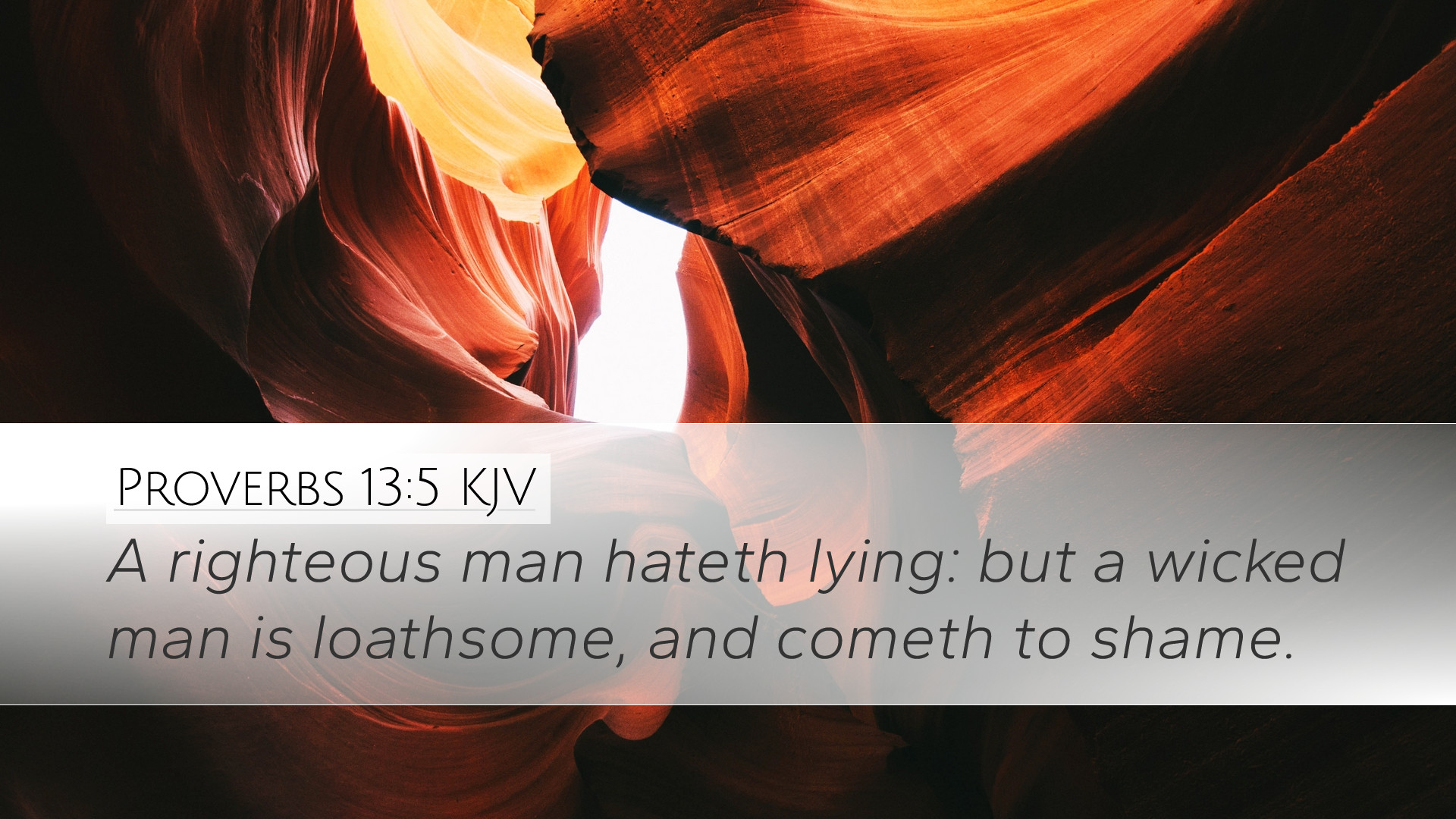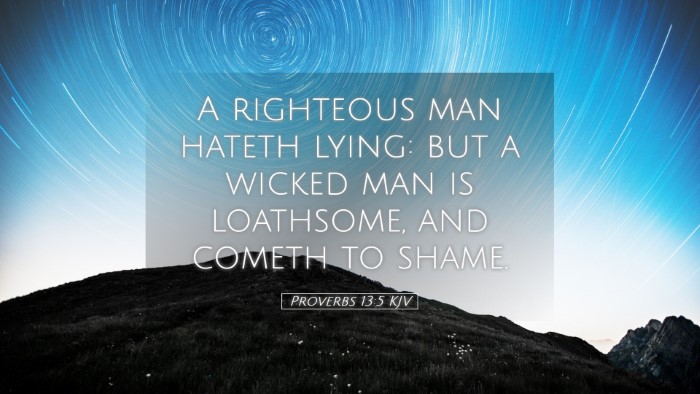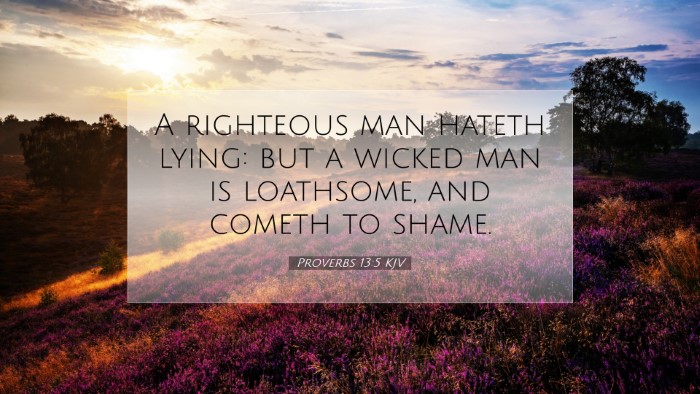Commentary on Proverbs 13:5
Verse: "A righteous man hateth lying: but a wicked man is loathsome, and cometh to shame." (Proverbs 13:5, KJV)
Introduction
The book of Proverbs is rich in wisdom, emphasizing moral virtues and the consequences of one's choices. Proverbs 13:5 contrasts the attitudes and outcomes of the righteous and the wicked, particularly in their relationship with truth and deceit. This commentary synthesizes insights from renowned public domain commentators, namely Matthew Henry, Albert Barnes, and Adam Clarke, providing a meaningful examination for pastors, students, theologians, and Bible scholars.
Analysis of the Text
The verse can be understood in several dimensions:
- Moral Character of the Righteous: The righteous man, characterized by his adherence to truth, inherently despises lying. This disdain for falsehood reveals a deeper love for honesty and integrity.
- Nature of Wickedness: Conversely, the wicked man not only engages in deceit but also becomes “loathsome.” This indicates a moral degradation that isolates him from community and truth.
- Consequences of Actions: The contrast culminates in the statement about shame, highlighting that deceit leads to disgrace while righteousness leads to honor and respect.
Insights from Commentators
Matthew Henry
Matthew Henry, in his comprehensive commentary, emphasizes the value of truth in the life of a believer. He notes:
"The righteous man shows his love for truth by hating lying. He is not merely passive in his attitude towards deceit; rather, he actively opposes it."
Henry further explains that the righteous man's aversion to lies extends beyond mere personal integrity; it reflects God’s nature. The character of God is truth, and to hate lying is to align oneself with divine attributes.
Albert Barnes
Albert Barnes elaborates on the implications of this verse, stating:
"A man who is virtuous cannot comfortably coexist with falsehood. To love truth is to loathe its opposite."
Barnes draws attention to the social ramifications of dishonesty, explaining that the wicked man's lifestyle not only brings personal shame but creates a ripple effect that taints relationships and communities. Shame, therefore, is a natural outcome of a life guided by deceit.
Adam Clarke
Adam Clarke’s commentary provides a theological reflection on the impact of righteousness and wickedness:
"The distinction between the righteous and the wicked is not only moral but also eschatological, bearing eternal consequences."
Clarke identifies the verse as a reminder that the paths of righteousness and wickedness yield distinct eternal destinations. The shame associated with wickedness serves as a warning to those who flirt with dishonesty.
Theological Implications
This verse invites deeper theological reflection on the nature of God as the ultimate source of Truth. The righteousness of a believer is akin to a reflection of God's nature. To pursue righteousness is to pursue a life that mirrors the truthfulness of Christ.
Practical Applications
For pastors and church leaders, the teachings of Proverbs 13:5 can shape preaching and pastoral care. Practical applications include:
- Encouragement of Truth-telling: Promoting a culture of honesty within congregations fosters trust and community.
- Condemning Deceit: Addressing the destructive nature of lying in sermons can help members understand the weight of their words.
- Moral Education: Teaching about the significance of integrity in everyday life instills values that align with biblical righteousness.
Conclusion
Proverbs 13:5 presents a profound reflection on the dichotomy between truth and deceit, righteousness and wickedness. The insights drawn from Henry, Barnes, and Clarke collectively underline the importance of truth in the life of a believer and the dire consequences of lying. As we seek to embody righteousness, this verse serves as both a challenge and an encouragement to embrace honesty, reflect God’s character, and pursue a life devoid of shame.


